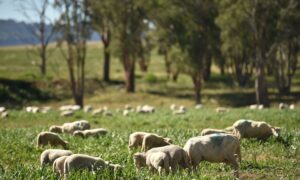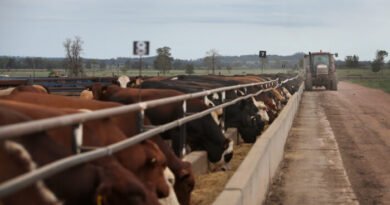Farmland at Risk as Safeguard Mechanism Turbo Charges Demand for Carbon Credits

Farmers are calling on the Australian federal government to ensure that the new Safeguard Mechanism does not spark a mass-buy up of agricultural land as carbon-producing companies seek to offset their carbon emissions.
National Farmers’ Federation (NFF) Chief Executive Officer Tony Mahar said that the agricultural sector was concerned about a potential land use conflict with the Safeguard Mechanism turbocharging the demand for land that can be used as a carbon sink.
“The safeguard mechanism will turbo-charge demand for offsets, and with few other options on the table, emitters will look to farmland,” Mahar said
“Offsets from farmland are the ‘net’ in the government’s ‘net-zero’ plan.
“This will potentially escalate land use conflict, with pressure to turn food and fibre-producing land into carbon sinks to counter the emissions from other industries.”
Australia’s Food Security at Risk
In particular, he noted that as the global population and food prices rise, Australia must be very careful not to jeopardise its ability to sustainably grow food and fibre.
“We need to find the balance between delivering carbon offsets and meeting our global food and fibre demands,” he said.
“Importantly, this also means supporting farmers to make informed business decisions about their participation in carbon markets. That’s why we’re calling for greater investment in on-ground extension services.”
Maher said that while farmers are serious about responding to climate change, “we have to ensure progress on climate doesn’t come at the cost of food security.”
The NFF is also calling for the federal government to establish a ministerial veto for projects exceeding 30 percent of a farm.
“It’s critical that government avoids a mass buy-up of productive farmland—including using the ministerial veto for projects exceeding 30 percent of a farm if necessary,” he warned.
Climate Change Minister Chris Bowen has initially excluded access to international offsets under the safeguard mechanism, which commences on July 1.
Green Deal Could Lead to Perverse Outcomes
The farming peak body is also concerned the amendments struck in the deal between the federal governments and the Greens will have “perverse outcomes.”
“We do not support any freeze on using the human-induced reforestation methodology,” the NFF said.
“We don’t want a scenario where senators rather than scientists are determining carbon market rules. Instead, Government should follow through with the implementation of the Chubb Review.”
Human-induced reforestation (HIR) is an approved method of carbon removal or sequestration that involves regenerating native forests by changing land management practices. The projects delivered using this method are designed to be carried out in areas where vegetation is being impacted by grazing, clearing and other activities
which have suppressed the potential growth of trees.
The carbon credits delivered through this method are based on the tonnes of carbon that trees or vegetation (biomass) growth removes from the atmosphere, with one Australian Carbon Credit Unit (ACCU) representing one tonne of carbon removed from the atmosphere.
The Greens have said they regard HIR as the most dubious offset class.
They say that the amendment freezing HIR will improve the integrity of the Australian Carbon Credit Units (ACCUs) until HIR projects are subject to an independent audit.




